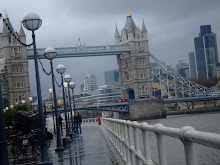Governor's, that is. The Sutton Trust have today published a report which is both depressing and familiar in which it sets out the current findings of an ongoing long term longitudinal study, of children born in the early 90s compared with children born in 2000, in this case dealing with behavioural issues.
It's depressing because it shows that for those children born into the lowest income families, behavioural issues have actually got worse and familiar because the impact of problematic behaviour on curriculum outcomes is significant across every phase of schooling. It has had a high priority in my particular school (necessarily in my view) because unless children know how to behave towards each other and the adults in the room, and how to manage and control their emotions properly, they cannot begin to learn and just as important, neither can anyone else in that room with them.
Nevertheless we have just had an Ofsted inspector comment that we should not lose sight of our other curriculum outcomes at the expense of PSED (Personal Social and Emotional Development) as it's known in the jargon. We haven't, believe me, but as I say if a child cannot share, or wait and take his/her turn or hits out at another child in frustration, then no learning can take place in that room.
Nationally this pattern of behaviour issues is also associated with poor attainment on entry to Primary school in CLL (Communication Language and Literacy). It's hardly surprising when you think about it a little and equally, if successful intervention takes place which necessarily involves the child learning to verbally express their frustration as well as be polite ie say "Please" and "Thank you", the corollary is an improvement in CLL outcomes.
Very often though, it is the parents who need support and whilst that might sound critical, it's not meant to be. Parenting is hard: not just the daily monotonous grind of physically caring for young children but rather the realisation that it's a process, that they are not going to be beautifully behaved just because you tell them to. It takes energy and consistency and young children are naturally programmed to test their boundaries. Also they 'model' behaviour - in other words they copy what they see and observe rather than what they are told.
How do we make parenting support and 'training' less judgmental, I wonder? One ongoing project in Southwark, which I have mentioned before is EPEC (Empowering Parents, Empowering Communities). But I think it would be facile to imagine that one single project could be the answer. It takes a whole range of approaches and input from different agencies sometimes to reach a satisfactory outcome which is why I remain convinced that Children's Centres offering a range of support to children and their parents, are the best way to help all kinds of families achieve the best possible outcomes for their children.
Tuesday, 2 November 2010
Subscribe to:
Post Comments (Atom)





I was very delighted when we visited a country lodge for lunch with family during the half term that some fellow diners commented on how well behaved my four children were. I think you are right that the parental attitude needs to be targeted and addressed.
ReplyDeleteI was in the doctors surgery the other day and the language aimed at one child was very poor.
I do however think that with the curriculum as it is currently set there is a need to develop language and literacy at an early age. It would be good if the targets for these were reviewed.
A great piece never the less BM and thank goodness funding for surestart and CC is still not hit by the drastic Public expenditure cuts.